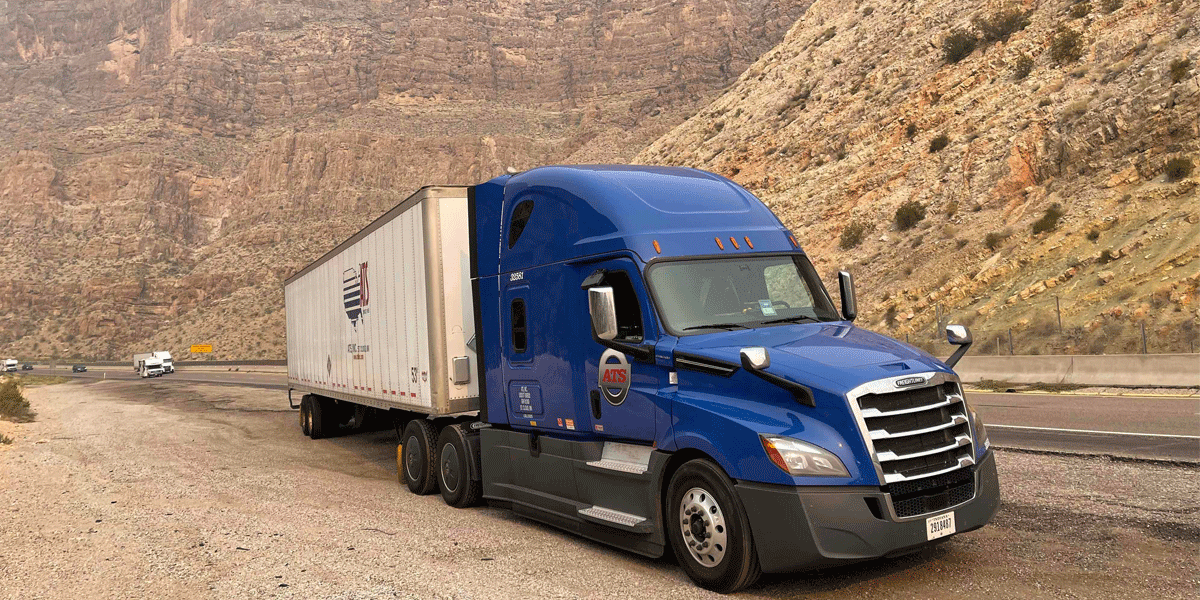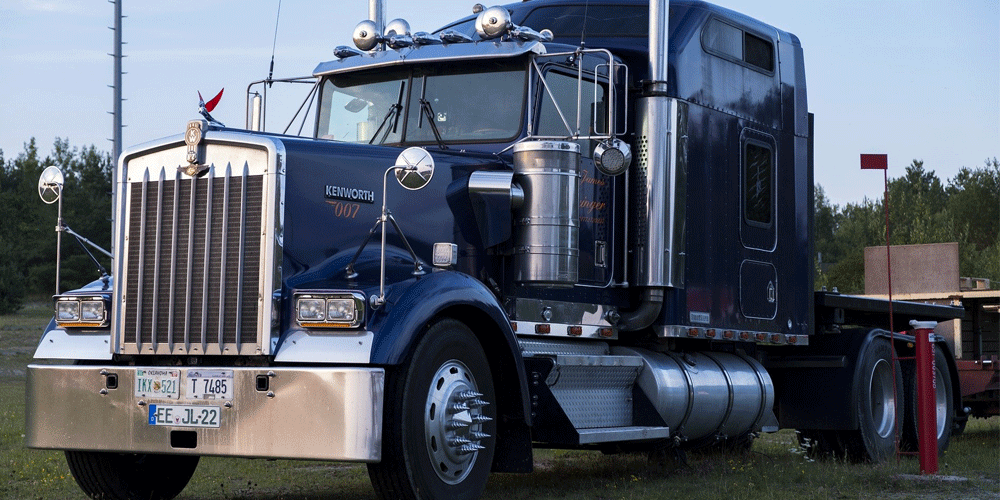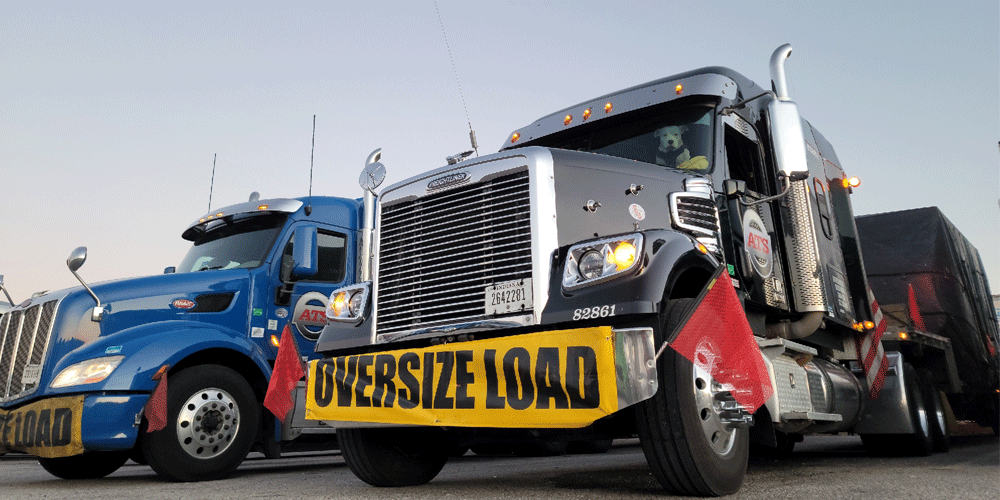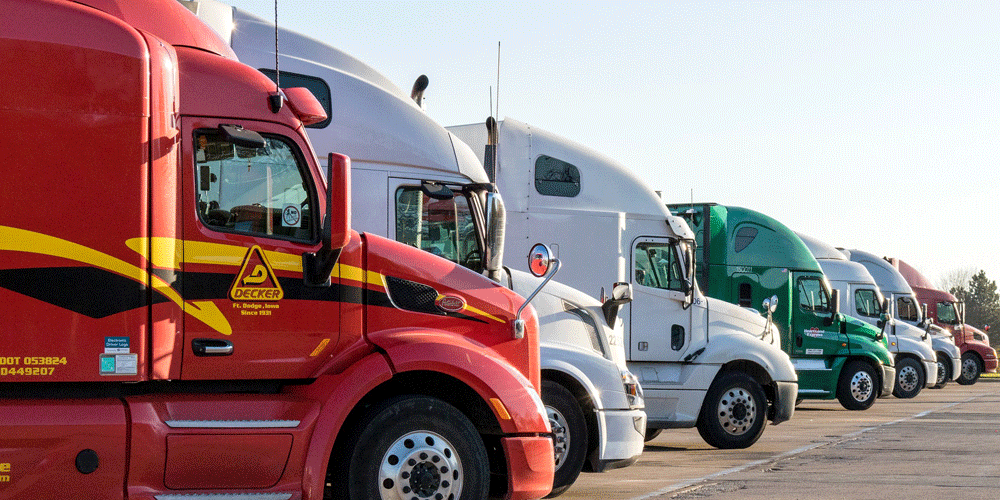Working with Small Trucking Companies vs. Mid-Size vs. Large Trucking Companies
Lars has been in the trucking industry his whole working life. He started working in the shop when he was just 16 years old. Lars spent about 10 years in operations before moving to driver recruiting. He spent five years in recruiting before joining the ATS team as the vice president of driver recruiting. He currently serves as the vice president of van operations. No day is ever the same in the trucking industry and Lars enjoys the challenge that presents.
Does size really matter?
When it comes to trucking companies, experts say yes.
Small, mom-and-pop trucking companies simply do things differently than large mega carriers do. That means you’ll see fundamental differences in equipment, freight lanes, training opportunities, support, pay, stability and driving options.
While ATS is a mid-size trucking carrier, I’ve worked in the trucking industry since I was a teenager, so I’ve spent time at both large carriers and small carriers and everything in-between.
In this article, I’ll give you an unbiased view of each size carrier. That includes:
- The differences between small, mid-size and large carriers
- The pros and cons of small, mid-size and large carriers
As you read through, think about what matters most to you and what you require out of your next trucking company.
The size of a company is based on how many trucks are in its fleet. For the purpose of this article, we’ve defined small, mid-size and large companies as:
Small: less than 300 trucks
Mid-size: Between 300 and 1,500 trucks
Large: More than 1,500 trucks
Keep in mind that company size is categorized differently by different companies; this is our definition.
Small Trucking Companies: What are the Pros and Cons?
Small companies, with typically between one and 10 trucks in the fleet, are a great option for drivers who appreciate knowing everyone in the company and having more of a say in the company.
Pro: Everybody Knows You and You Get the Respect You Deserve
When you work at a small trucking company, chances are the owner is your dispatcher or they’re driving in the fleet alongside you. They’re readily available to you and you’re probably treated more like a family member than just another number.
You’ll get the respect you deserve as a driver and the work you do will be recognized and valued. Your voice will be heard and you’ll have the ability to make a bigger impact than you would at a large company.
Pro: Mistakes are More Easily Forgiven
Because you’re treated like a family member, mistakes are more easily forgiven. If you have an accident with a small carrier, like a moving violation, you’re fairly likely to be forgiven and to continue to drive with that carrier. Because large carriers have stricter guidelines, that same mistake may send you packing.
While you shouldn’t make it a habit of getting into accidents, it can be reassuring to know that one mistake won’t necessarily make or break you.
Pro: The Hiring Guidelines are Less Strict
Just like you’re more likely to be forgiven for an accident at a smaller company, you’re still likely to be hired even if you have a moving violation on your record or a less-than-stellar track record in general.
Safety records won’t be scrutinized as heavily as they are at larger companies, and the company will most likely just ensure you meet basic guidelines set by the Department of Transportation. They likely won’t run extra background checks either. However, because hiring guidelines are less strict, the interview process may be longer.
This may seem like a pro to some drivers, but it can ultimately be a con. While less strict hiring guidelines are advantageous to drivers who don’t have a spotless record, it can end up hurting you and the company in the end. If a major accident occurs and then goes to court, it’s could be costly enough to sink the carrier. You may not have a job the next day if this happens.
Con: The Company Can Be Bought Out
Small carriers are often in danger of being bought out, or acquired, by larger companies. And if you’d rather not work for a mega carrier, you’ll need to find a new job with a new company very quickly.
Con: There May be Fewer Driving Options
When you drive for a small carrier, you may be limited to only a few customers and freight lanes. You may only be able to drive a local or regional route. Vans might be the only type of trailer you haul.
On the other hand, a larger carrier will more often than not have local, regional and over-the-road (OTR) routes with options to move multiple trailer types.
Is OTR trucking right for you? Learn more.
Con: Pay Might Not Be Stellar
Pay can really go either way at a smaller company. Some small companies pay really well — others, not so much. As there are only a handful of trucks driving revenue, the debt to income ratio can get out of hand and it can be financially tough to make it as a small carrier.
Because small companies don’t have as much buying power and they might not be as stable as a large company, the financial burdens may impact drivers directly. The money to close the debt to income ratio has to come from somewhere, so you may see pay cuts, delayed payments, skipped maintenance appointments and overnight closures.
Con: Equipment May Be Hit or Miss
The buying power of a small company simply doesn’t compare to that of a mega carrier. Some small companies may have newer equipment, but most of them don’t. They usually don’t have the buying power to purchase an abundance of spare parts either, so you may be shut down for a while as you wait for parts to come in.
Their maintenance policies might not be up to snuff, either. Instead of fixing everything on your truck, they may fix just enough to keep you running safely.
Con: There May Be No Insurance Benefits
Just like a company’s buying power can affect equipment, it can also affect benefits. If the company even offers benefits to company drivers, like health insurance and a retirement plan, they probably won’t be great.
Mid-Size Trucking Companies: What are the Pros and Cons?
Mid-size trucking companies often get lumped in with large trucking companies, but there are some notable differences. Mid-size trucking blend together some of the elements of small and large trucking companies.
Pro: You’ll Get Insurance Benefits
At a mid-size trucking company, your benefits might not be as great as that of a large trucking company, but the company usually has enough buying power behind them to offer a benefits package.
Pro: You’ll Get the Respect You Deserve
A mid-size trucking company is large enough that the owner of the company isn’t also your dispatcher or driving alongside you (such as could be the case at a small company), but it can still have a family feel.
Mid-size companies typically offer a personal, respectful environment where your voice is heard. You may know the owner and you’ll have a supportive team behind you.
Pro: You’ll Have Access to Well-Maintained Equipment
The buying power isn’t that of a large company, but mid-size companies typically still have good, well-maintained equipment.
Pro: The Pay is Usually Competitive
Mid-size companies often offer competitive pay in order to compete with other (larger) companies.
They aren’t usually publicly traded like a large carrier. That means, while a large carrier may answer to Wallstreet, a mid-size trucking company might be more willing to pay drivers more to boost retention.
Con: They Can Be Bought Out
Mid-size companies don’t have the same buying power as a mega carrier, so they can be the subject of acquisition just like a small trucking company. That means, if the company gets acquired, you could be out of a job or you’ll need to adhere to the standards of the trucking company that acquired the mid-size company.
Con: They Usually Have the Strictest Hiring Guidelines
Mid-size carriers are usually the strictest with their hiring guidelines amongst all company sizes. They’re just big enough that they have a target on their backs but just small enough that they could be wiped out by an accident. If you don’t have a clean record, it may be tough to get hired at a mid-size trucking company.
For some drivers, this could be seen as a pro. Because the hiring guidelines are so strict, mid-size companies tend to have great safety scores. Great safety scores benefit the company and the driver.
Con: There May Not Be a CDL Training Program
Unlike large trucking companies, mid-size trucking companies are less likely to have a training program and more likely to require verifiable driving experience. That means if you’re looking to earn your CDL or you have your CDL but you need experience, you’ll have to go somewhere else (like a large trucking company).
Con: You Might Have Fewer Driving Options
A mid-size company may not have as many driving options as a large company, but they’ll likely have more options than a small trucking company; they fall in the middle in this area.
For instance, they may have options for flatbed drivers and dry van drivers, but they might only have over-the-road routes and no dedicated or local lanes.
Large Trucking Companies: What are the Pros and Cons?
While large companies (also called mega carriers) may not provide the family environment that small companies do, they usually offer better benefits, training opportunities, pay and equipment.
Pro: You Have Training Opportunities
If you’re looking for your first job out of trucking school, a large company is the best choice — and oftentimes, it’s the only choice. More often than not, the companies that train drivers are large ones. You’ll either get the experience you need with a trainer, or you’ll get the chance to build up some verifiable experience.
Large training companies may be able to help you get your CDL as well or they can reimburse you for your schooling.
What are the best carriers for new drivers?
Pro: You Have More Equipment to Choose From
Larger companies simply have more buying power, so they usually have the newest equipment on the road because they’ll trade out equipment when the warranty is up. Not only that, but they usually have more terminals and contracts with shops and vendors across the country to ensure breakdowns are addressed quickly.
If you’re a company driver, your company may even get you into a backup truck while you wait for yours to be fixed.
Pro: You Have a Large Team Supporting You
At a small trucking company, your dispatcher may also be the payroll person and the safety team. At a large trucking company, there are multiple departments in place to help you with different things, including human resources, safety, maintenance, payroll and more. That means there’s always someone there to help you.
Pro: The Insurance Benefits are Better
With more buying power, large trucking companies can typically offer a better, more comprehensive insurance package to their company drivers than small companies can. In addition to health insurance and a retirement package, they also usually offer paid vacation time.
Pro: The Pay is Better (Usually)
Pay is not universal, so large trucking companies don’t always pay well. However, large companies are usually the ones competing the most for drivers, so they’ll crank up their pay to stay competitive.
Pro: There are More Driving Options
At a small trucking company, you may only have regional driving options. At a larger company, you may be able to switch from local, to regional, to OTR driving. You may be able to haul dry vans, reefers or flatbed loads and your freight variety will be wider.
Con: The Hiring Guidelines are Stricter (Usually)
Depending on what kind of driver you are, this could be a pro or a con. If you’re a driver with a lot of moving violations, CSA points and other incidents on your record, you may not be qualified for a job with a large trucking company. But if you are safety-minded, a larger company may be more your speed.
One major accident isn’t likely to make or break a large company like it can with a small company.
Con: Safety Culture Overrides Personal Culture
Safety culture will always override personal culture at a larger carrier. It goes back to their strict hiring guidelines. Accidents are treated methodically. You could’ve been driving for the company for 20 years, but if you have an accident that takes you out of guidelines, you’ll be let go.
Con: You Might Feel Like Just a Number
The larger the company, the harder it can be to make your voice heard. Change happens slowly, and especially if the company is publicly traded, you may not have a say at all.
Having a large support team can feel great at times, but if turnover is high, your dispatcher may change regularly or you could be talking to new team members all the time that don’t know who you are. It can be hard to feel seen and that can become frustrating.
Choose the Best Trucking Company For You
Every company size has benefits — it just depends on what type of driver you are. Choosing a small, mid-size or large trucking company comes down to what matters to you most: Do you look for a company that makes you feel like you’re part of the family? Or do you long for a stable paycheck and freight variety?
If you care more about feeling like a valued player on the team where everyone knows your name, choose a small trucking company.
If you’d like your voice to be heard but you’d like the stability a larger company offers, choose a mid-size trucking company.
If you care more about earning a steady paycheck, driving the best equipment and being afforded advancement opportunities, a large trucking company is your best bet.
So now that you have all the options laid out in front of you, it’s time to make a decision.
Carefully consider what you value most, as well as your list of negotiables and non-negotiables when switching carriers. How does the size of a trucking company align with these goals?
ATS is a mid-size trucking company with OTR driving opportunities for company drivers, independent contractors and owner-operators in the vans, flatbed, specialized and heavy haul divisions. We are proud to offer competitive pay, great home time opportunities and well-maintained equipment.
If you’re looking for an opportunity in one of these divisions, you can fill out an application or contact us to learn more about ATS.




